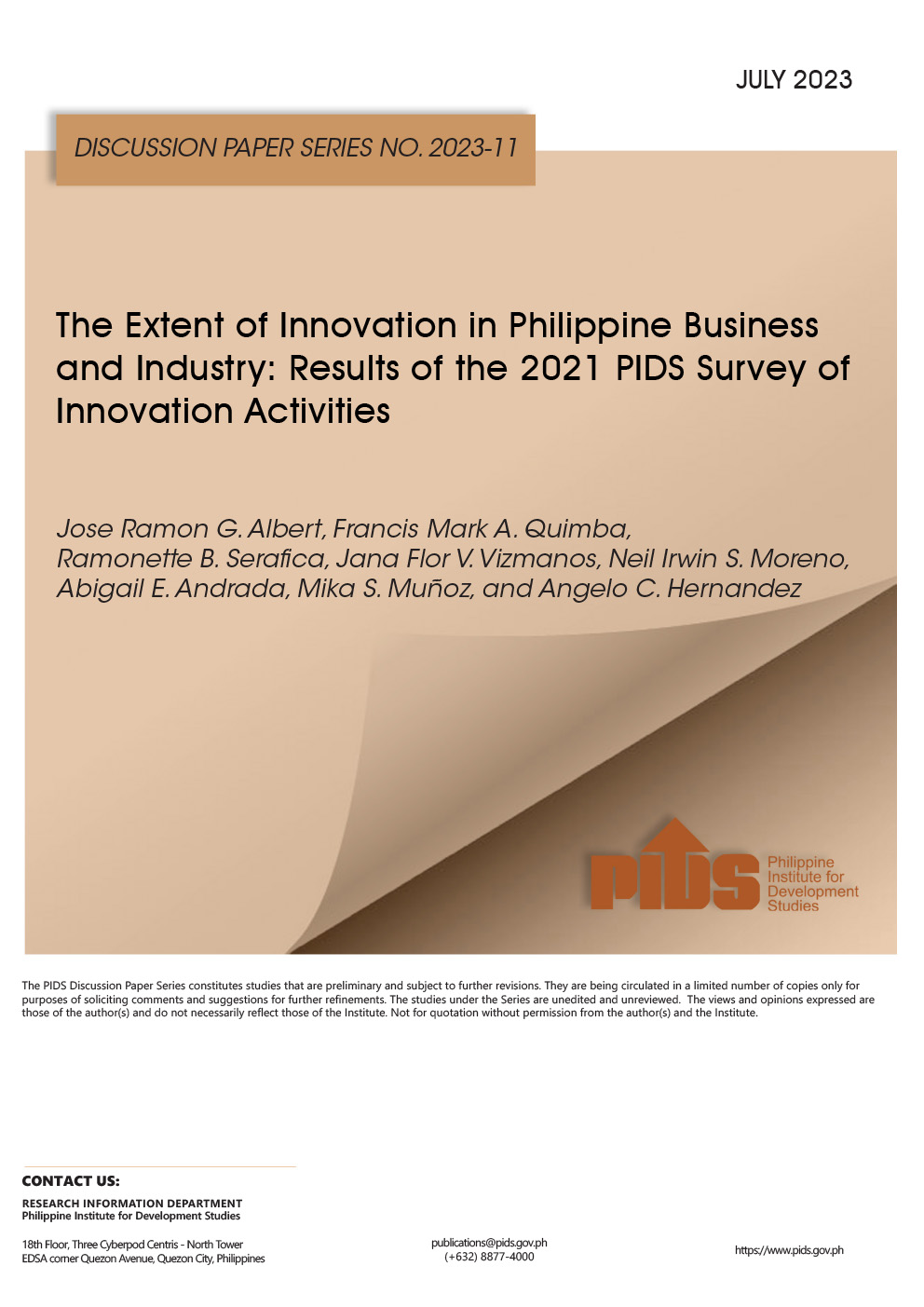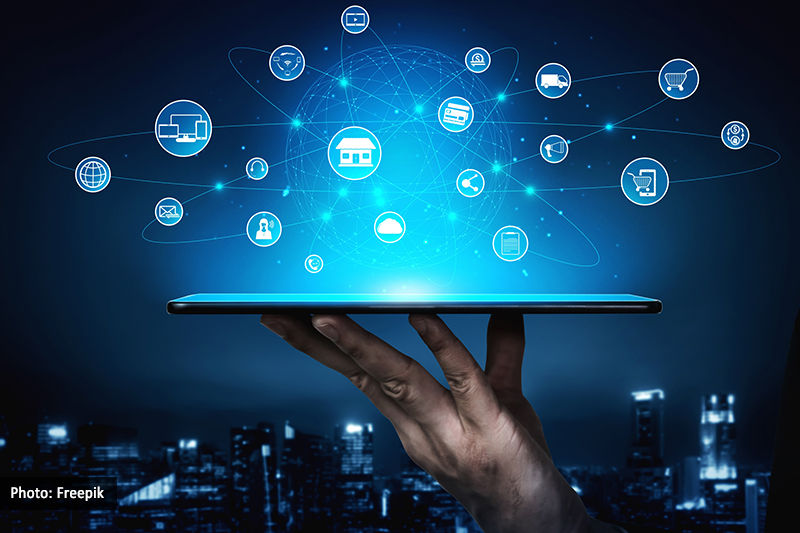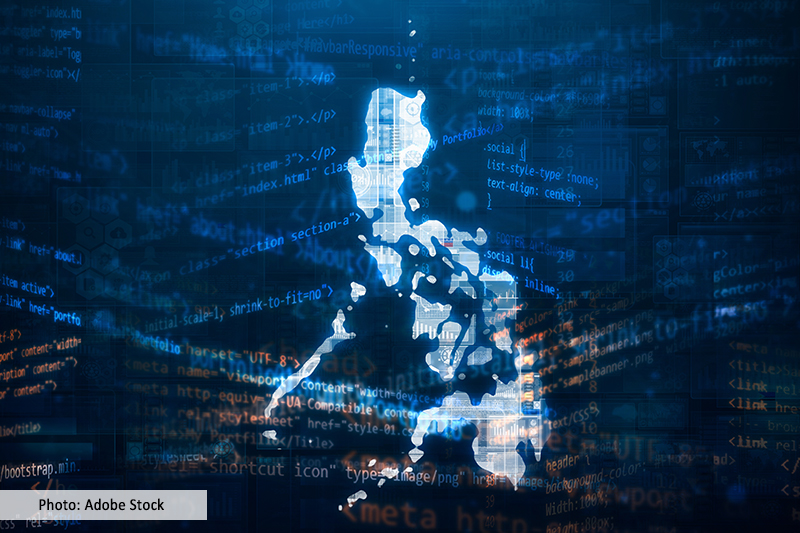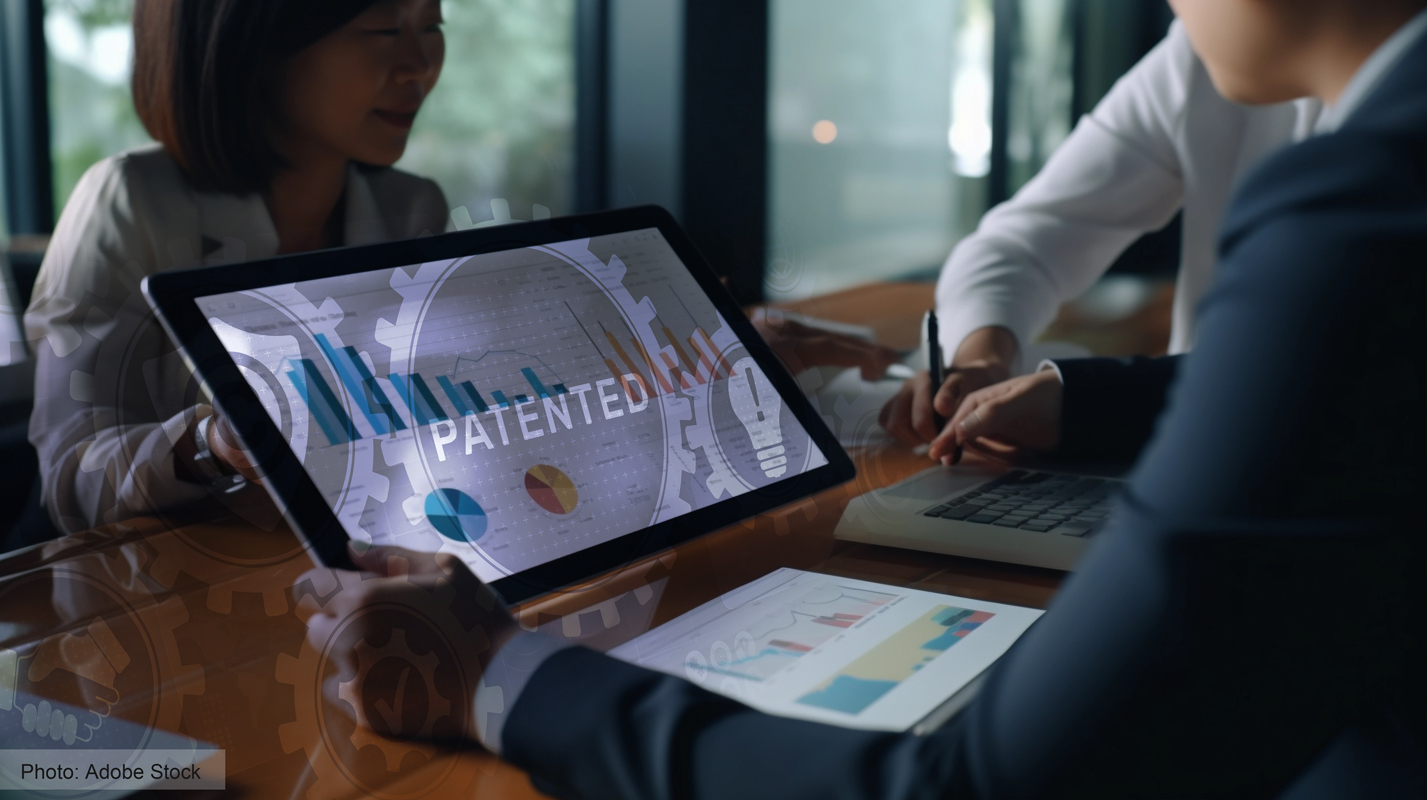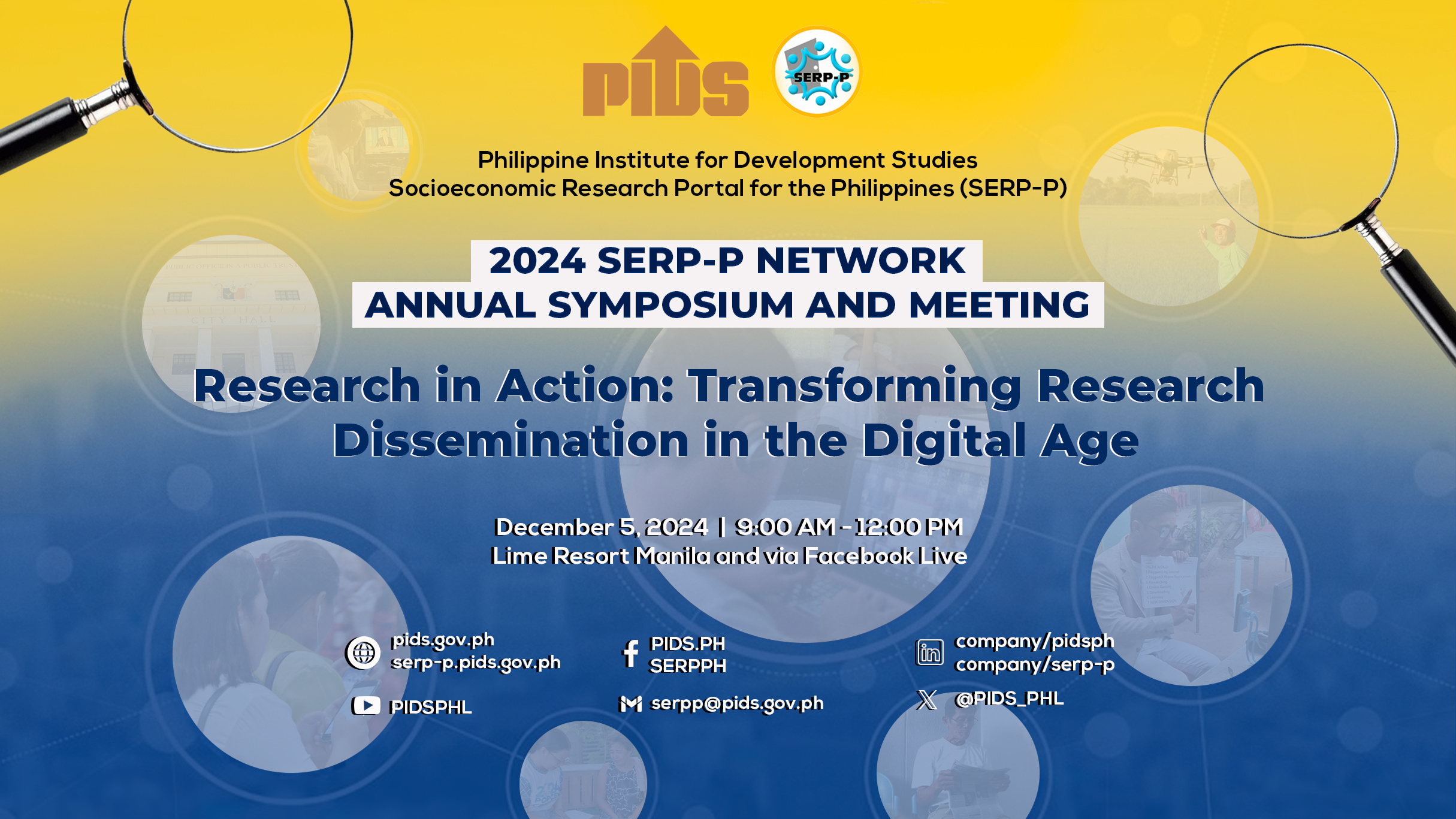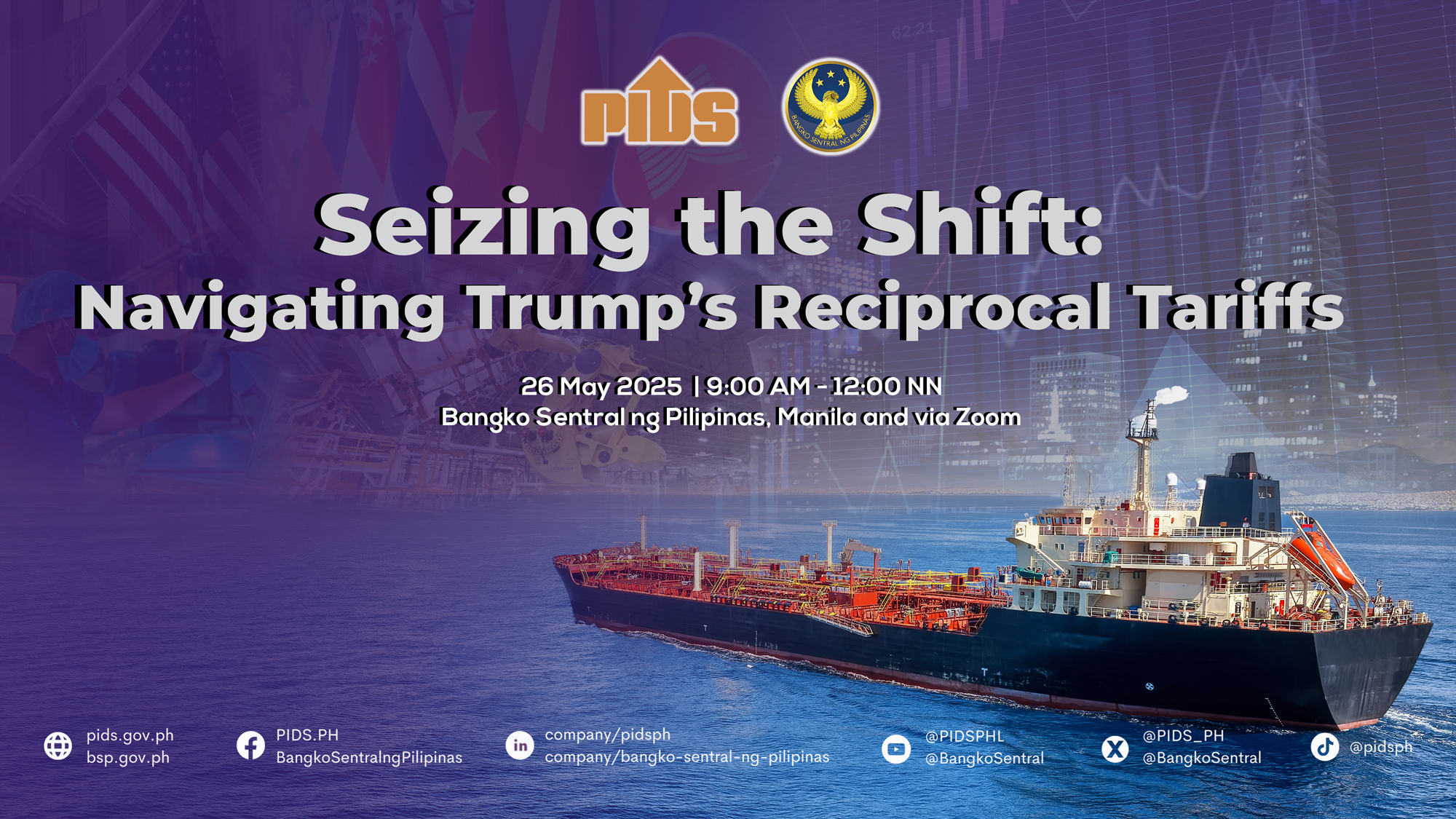
The COVID-19 pandemic has accelerated the shift to digital economy and the Philippines should take advantage of it.
Thomas Abell, chief of Asian Development Bank (ADB)’s Digital Technology for Development, highlighted this during a recent webinar organized by the Philippine Institute for Development Studies (PIDS) and ADB.
Abell, a discussant in the webinar, said the world might see an economic boom that will fuel digital economy as countries transition to the so-called ‘new normal’ once “the pandemic starts to recede.”
Part of this ‘new normal’, according to Abell, is seeing major platform players “fight over market share” and “move more of their market focus”.
“I think there is going to be more flexibility in terms of where digital jobs can be located. The Philippines already has an advantage with 1.2 million BPO [business process outsourcing] workers and a strong startup ecosystem where there is [already] a good digital talent pool,” Abell explained.
This, he added, presents an opportunity for the country, saying that “now is the time to position the Philippines to be an attractive place for startups to relocate or for those who want to have flexibility.”
At present, major businesses in the country have already shifted to digital platforms to reach their target market. One example is the Philippine Seven Corporation (PSC) that operates 7-Eleven convenience stores in the country.
PSC President and Chief Executive Officer Jose Victor Paterno, also a discussant in the webinar, expressed the same sentiments as Abell, saying that COVID-19 opened opportunities for its stores to go online as “people are already doing it.”
Paterno said the company was able to come up with several innovations, including online grocery and payment applications, cash-recycling automated teller machines in its select branches, and an upcoming initiative connecting farmers to buyers via online shopping.
Meanwhile, as the digital economy continues to grow in the country, Abell said there is a need to address the existing digital divide by building infrastructure and providing better internet access “so that the digital economy can benefit more people at the bottom of the pyramid and not cause more inequality”.
“Unfortunately, this is something that platform companies are not doing directly. They are still relying on public investment to build the pipes to get people connected,” he added. ###
You may watch the webinar at https://www.facebook.com/PIDS.PH/videos/267811908346029. For more videos of PIDS events, go to https://www.pids.gov.ph/videos.
Thomas Abell, chief of Asian Development Bank (ADB)’s Digital Technology for Development, highlighted this during a recent webinar organized by the Philippine Institute for Development Studies (PIDS) and ADB.
Abell, a discussant in the webinar, said the world might see an economic boom that will fuel digital economy as countries transition to the so-called ‘new normal’ once “the pandemic starts to recede.”
Part of this ‘new normal’, according to Abell, is seeing major platform players “fight over market share” and “move more of their market focus”.
“I think there is going to be more flexibility in terms of where digital jobs can be located. The Philippines already has an advantage with 1.2 million BPO [business process outsourcing] workers and a strong startup ecosystem where there is [already] a good digital talent pool,” Abell explained.
This, he added, presents an opportunity for the country, saying that “now is the time to position the Philippines to be an attractive place for startups to relocate or for those who want to have flexibility.”
At present, major businesses in the country have already shifted to digital platforms to reach their target market. One example is the Philippine Seven Corporation (PSC) that operates 7-Eleven convenience stores in the country.
PSC President and Chief Executive Officer Jose Victor Paterno, also a discussant in the webinar, expressed the same sentiments as Abell, saying that COVID-19 opened opportunities for its stores to go online as “people are already doing it.”
Paterno said the company was able to come up with several innovations, including online grocery and payment applications, cash-recycling automated teller machines in its select branches, and an upcoming initiative connecting farmers to buyers via online shopping.
Meanwhile, as the digital economy continues to grow in the country, Abell said there is a need to address the existing digital divide by building infrastructure and providing better internet access “so that the digital economy can benefit more people at the bottom of the pyramid and not cause more inequality”.
“Unfortunately, this is something that platform companies are not doing directly. They are still relying on public investment to build the pipes to get people connected,” he added. ###
You may watch the webinar at https://www.facebook.com/PIDS.PH/videos/267811908346029. For more videos of PIDS events, go to https://www.pids.gov.ph/videos.

